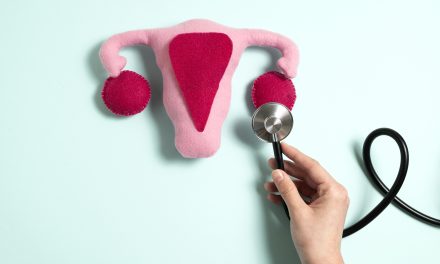Could your body be warning you about a mineral deficiency? Discover the symptoms to watch for
The foods we eat should typically contain essential vitamins and minerals – especially if you’re eating more nutritious foods than not. But, what happens when you’re not getting these necessary nutrients? It can show up as signs and symptoms in your body.
Quick Read:
- A mineral deficiency means that your body is lacking in certain essential minerals.
- Your body has ways of letting you know that it’s not receiving essential minerals.
- Don’t ignore telltale health warnings; the sooner you fix your diet, the better.
Understanding mineral deficiencies
Just as a sponge absorbs water, your body takes in nutrients, typically from food. When your body doesn’t get enough essential minerals from a healthy diet, or it cannot properly absorb them, you may end up with a mineral deficiency.
You have a daily job and minerals have their specific jobs – within your body. Minerals help to keep your muscles and bones strong, and your brain in good health, while supporting your overall wellbeing. We all need a daily intake of minerals to stay as healthy as possible.

Let’s look at seven minerals that help your body to function
- Calcium – Important for strong bones, teeth, muscle function, and nerve signalling.
- Magnesium – Supports muscle and nerve function, bone health, and energy production.
- Potassium – Needed for heart health, muscle function, and maintaining fluid balance.
- Sodium – Regulates fluid balance, blood pressure, and nerve signalling.
- Iron – Vital for producing red blood cells and transporting oxygen throughout the body.
- Zinc – Supports immune function, wound healing, and cell growth.
- Iodine – Necessary for thyroid function and the production of thyroid hormones.
Signs and symptoms of mineral deficiencies
A weaker-than-usual immunity, thinning hair, and even persistent acne could mean you’re lacking zinc. This mineral is vital for healing and fighting infections.
Brittle nails? Dry skin? Constantly feeling tired? These symptoms may point to a calcium deficiency. We need calcium to help maintain the strength of our bones, but it’s also necessary for energy and skin health.
Are muscle cramps, fatigue, or even anxiety troubling you? Magnesium plays a key role in calming the mind and body. So, when there’s a lack, you probably notice these alerts.
A potassium deficiency often manifests as muscle cramps, abnormal heart rhythm (arrhythmia), or muscle weakness. You may also notice bloating as potassium is important to maintain fluid balance and support proper muscle and nerve function.
Do you often feel unusually cold? Is your skin looking paler than usual, and are you constantly tired no matter how much rest you get? These could be signs of an iodine deficiency. Your body needs iodine to keep your thyroid gland in a healthy state. The thyroid gland, found in your neck, produces hormones that regulate your metabolism, energy levels, and even your body temperature. Without enough iodine, your thyroid can’t make these hormones efficiently, which can lead to symptoms like low body temperature, pale skin, and ongoing fatigue.
If you’re dealing with hair loss, memory problems, or slow wound healing, selenium could be the missing link. It also supports your immune system by acting as a powerful antioxidant, protecting your cells from damage and reducing inflammation.
Help at hand
Deficiencies don’t just make you feel off; they can affect everything from your metabolism to your immune system. Here are a few tips to naturally boost your mineral levels.
Many of our traditional foods are packed with essential minerals. Add more leafy greens like moringa or spinach to your diet, as well as groundnuts or cashews, which are good carriers of zinc and healthy fats.
Sometimes, a balanced diet alone may not be enough. If you don’t have easy access to a variety of foods, ask at the clinic or pharmacy about supplements to help fill the gaps.
Whether it’s drinking water infused with traditional herbs like hibiscus or enjoying natural coconut water, staying hydrated helps your body absorb and retain minerals.
Regular check-ins are important. Pay attention to signs like fatigue, cramps, or irregular heartbeats, which could indicate mineral deficiencies. Many communities have health groups or community clinics that offer regular screenings to monitor your overall health.
Images: Freepik



















